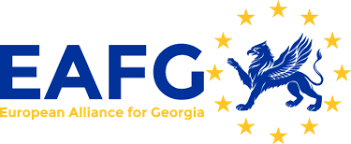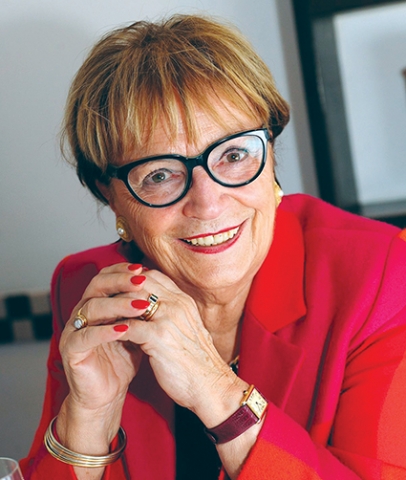Former MEP Pack on Women, Education & Georgia’s Future Prospects
Exclusive interview
It’s not often that you encounter a politician that is equally knowledgeable in gender issues, youth education and EU enlargement, but Ms. Doris Pack, President of the EPP Women, former MEP (20 years!) and rapporteur on Bosnia and former member of the EP delegation to Balkan countries, is just that. So we grabbed our chance to quiz her on all the above mentioned subjects for our weekly “Messages from Brussels” series.
Georgian parliament rejected a bill on the quotas of women’s participation in politics. What would be your message to Georgians and Georgian women?
Georgia is not alone with this problem and it has to be solved because it’s a fact that women constitute one half of Mankind and they should be represented wherever they want to be represented. We have to give them a chance and not having quotas means that everything will go forward as it was: men, men, men.
So while I think that quotas are not a solution to everything, it is a good thing to take it as a first step. I hope the leaders of the country, will accept at least that this is no humiliation of men; this is giving back to women who have never been represented as they should be. In politics, like in other activities, a bird cannot fly with one wing. We need two of them to fly and the same goes for political parties and businesses.
One of the major leverages that would help us overcome discriminatory thinking is education. What kind of know-how can the EU offer Georgia in that regard?
First of all, it’s about national education, which should keep in mind that education should be equal. I believe there is a normal education system in Georgia and we are not intervening in the education system, but we do offer a lot of possibilities not only for students, but also for those seeking vocational training. I was behind the Erasmus+ program Protestantism, Catholicism; we have even in schools possibilities to bring at the age of 8-18-year-olds together working on the same subject. I was behind the Erasmus plus program; we see to it that children, leaders and teachers in five or six schools in the EU come together to work on one particular subject. The result shows how diverse the EU is, how diverse Europe is and the kids understand what it means to be European and to work equally as men and women, girls and boys. Being a long-time teacher, I say we need good vocational training so that everybody can get a good job, and we need people who can work in digital systems because while digitalization is taking a lot of jobs, it also offers new jobs. Education can teach us to understand such new jobs in this new society.
There’s ongoing debate in Georgia as to whether religion should be taught in school. What is your take on that issue?
In Germany, religions are taught in schools- Protestants, Catholics and even Islam. Teachers don’t try to indoctrinate; but if a country doesn’t have this tradition of having religious education in schools, I think it’s better not to do it at all and instead do it where the kids can choose to go or where the family can choose to send them to learn about their religion. When you have high cultural and even religious diversity, it’s better to do it outside the school; in schools we can speak about values, ethic education, and the fact that values should be the same in all religions; so I think if you have a good ethic education, it will be very helpful for those who want to get a religious education.
You spent more than a decade involved in EU-Balkans relations. What do you think Georgia can learn from them?
I don’t think it can learn much from them because they’re not quite ready to enter due to the internal strife, corruption, justice system issues, media freedom and the like. It will take a long time to sort. Serbia and Montenegro are negotiating but it doesn’t mean they are really fulfilling everything needed to join the Union: you have to meet the obligations, which means not only on paper, you have to prove that you are really implementing what you promised to do fight corruption, have a good justice system, don’t hinder media, respect minorities, etc. In 2003, the Balkan states got assurance, signed by the then-council of ministers at the Thessaloniki Summit, that they would become members of the EU only if they fulfilled the obligations and conditions. But Serbia, with the Kosovo issue alone, still has a lot of work to do in this regard.
Georgia also experiences territorial conflicts. It's an obstacle is that to EU or NATO membership?
Its an obstacle needing solving sooner rather than later. Otherwise, we are taking them into the EU and it doesn’t need more problems; we had our financial crisis, the asylum problem, refugees, the situation after Brexit. But we do need new countries, and if they want to join, they should solve their problems first, at least problems with neighboring countries. If not, the EU citizens will be asking politicians why they were let in before they really solved their problems. There’s a lot to be done in all the eastern countries. But I hope Georgia overcomes its issues because it has a long culture to be proud of. With good governance, and this is up to the politicians and those who are running the country, if the opposition can help, there will be progress.
The article was prepared in the scope of “Messages from Brussels” series, a project by European Alliance for Georgia, a Brussels-based advocacy organization dedicated to “Bringing more Georgia into Europe.”

By Vazha Tavberidze












